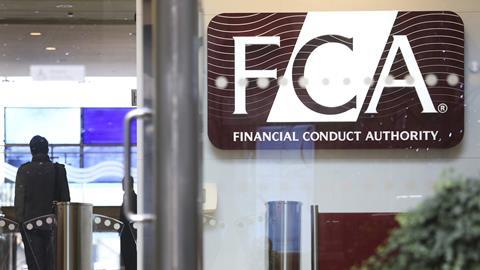The Financial Conduct Authority (FCA) has announced that its disclosure process in enforcement cases will be expanded. This likely increases the scope of the exercise of engaging with the evidence in such cases for in-house legal teams and private practice lawyers advising firms under investigation.


The FCA, which regulates around 42,000 financial services firms, has confirmed that all material that is relevant to the facts of the matter, not just material that potentially undermines the FCA’s case, will now be disclosed save where it is disproportionate, not in the public interest or otherwise inappropriate.
The decision, which follows a recent ruling by the Upper Tribunal in which the watchdog was heavily criticised for its disclosure failings, means that in-house and external counsel advising on such processes will likely have to review and consider significantly more disclosed documents.
The relevant Upper Tribunal ruling stemmed from the FCA’s £18m fine levied against Julius Baer International Ltd (JBI), one of the oldest private banking institutions in Switzerland, in February 2022.
The final notice against JBI included criticism of three JBI employees in relation to unlawful ‘finder’s fees’ paid through ‘inflated’ foreign transaction exchange charges from a representative of the Yukos group of oil and gas companies. The JBI employees were then subject to prohibition orders against them.
The FCA alleged that the three individuals lacked integrity by recklessly disregarding potential fund-misappropriation risks.
Last year, following an application by the JBI employees to challenge the FCA’s decisions against them (Seiler and others v FCA [2023] UKUT 00133), the Upper Tribunal found that the allegations of a lack of integrity were unfounded, albeit it did not rule that the prohibition orders were inappropriate, and, subsequently, ordered the FCA to pay some of the JBI employees’ costs. In doing so, the tribunal strongly criticised the FCA’s approach to the investigation.
Of particular concern to the tribunal was the FCA’s handling of evidence. The FCA was criticised for making very late disclosure of a relevant document because it had wrongly decided that the document did not undermine the regulator’s case.
The tribunal ruled that any reasonably competent and properly trained reviewer should have identified the document as disclosable because it could undermine the FCA’s case.
The tribunal found that the regulator had presented incorrect factual information when it issued its initial warning notice to the parties.
Criticism was also made of the FCA’s press release about the case, which the tribunal described as ‘nothing short of disgraceful’ because it was highly misleading and downplayed criticisms the tribunal had previously made of the authority’s investigation.
The Court of Appeal, in a decision last July, ultimately upheld the tribunal’s costs order against the FCA. This leaves the door open for similar orders in future proceedings, although likely in limited circumstances.
The FCA’s announcement of its new, broader approach to disclosure is expressly linked to the decision of the Upper Tribunal in Seiler. By focusing its disclosure reviews on identifying all relevant material, rather than only material which may undermine its own case, there should be less risk of relevant material not being disclosed, according to the watchdog.
The FCA says its new approach will be achieved through additional training and support for staff who manage and oversee disclosure exercises. It also stated that it will introduce clearer guidelines defining staff roles and responsibilities in the disclosure process, coupled with enhanced quality assurance measures.
However, the FCA will need to be mindful of other factors identified by the Upper Tribunal as contributing to its investigative failings, but which are less easy to address. These include insufficient resourcing and a lack of staff continuity.
So, what impact could this development have on firms engaging with a regulatory investigation brought by the FCA?
In some complex cases, it could mean that the party facing potential sanctions is provided with a much greater volume of disclosure, particularly where the FCA will now presumably wish to avoid further criticism of its approach and may err on the side of disclosing more rather than less. Those under investigation will probably take the view that the increased burden and cost of considering such additional documents is a price worth paying for receiving fuller and fairer disclosure.
In light of the recent findings, parties may consider they have a better basis for challenging the adequacy of the FCA’s disclosure going forward and may find the regulator more receptive to requests in that regard.
The FCA’s announcement will also inevitably raise questions concerning what relevant material may have been missed in other cases, particularly in respect of lengthy investigations where the FCA’s effectiveness has been hampered by issues such as staff turnover, referred to above, and the loss of corporate memory that this can entail.
The extent to which disclosure points can be reopened will depend on the status of the relevant enforcement proceedings but will be of particular relevance to lawyers advising on proceedings that remain live.
With the FCA recently talking about the need for transparency in other contexts (for example, in relation to market transparency and publicity in investigation processes), it now faces the burden of demonstrating the same in its conduct of disclosure in the enforcement process. Firms subject to enforcement cases will expect their lawyers to be on the front foot to take advantage of the opportunities the FCA’s new approach may bring.
Abdulali Jiwaji is a partner and Alasdair Glass counsel at Signature Litigation, London
































No comments yet